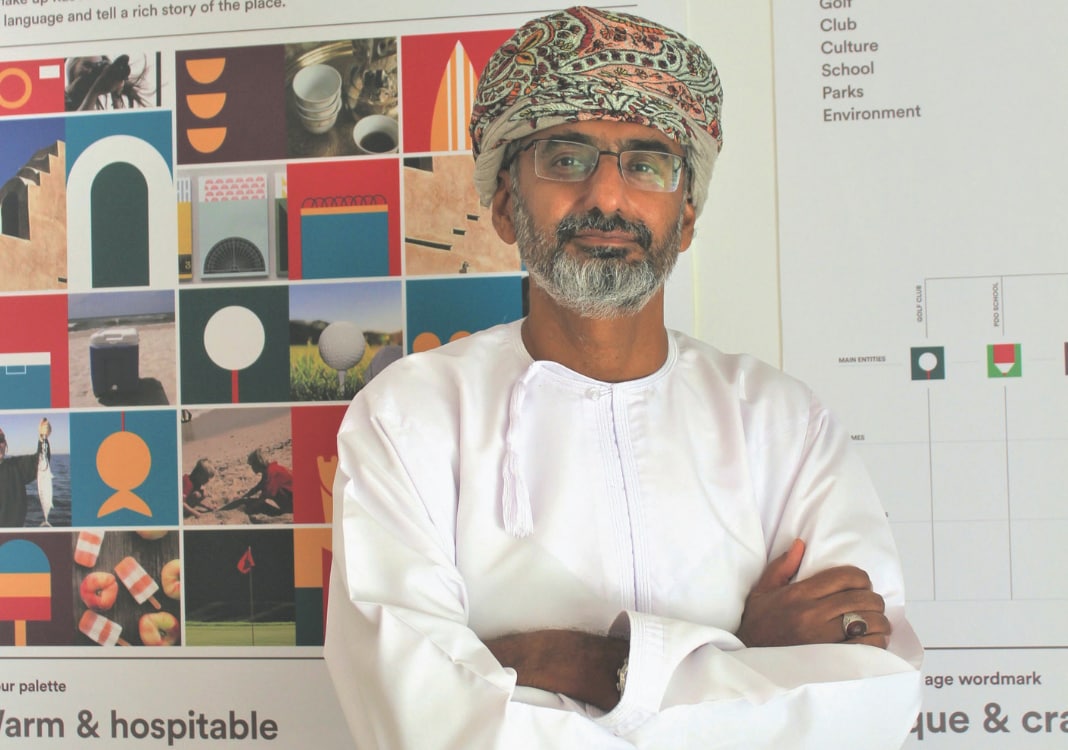Uncategorized
Value Proposition

Having worked in Petroleum Development Oman (PDO) for almost 25 years, Ahmed B. J. Hassan Al Lawati, who has recently taken charge as the Development Manager of the Ras Al Hamra residential development project (RAHDP) in Muscat, is excited about his new role and is looking forward to ensure the timely completion of the fivephase project in 2022.
Prior to assuming his current role as Development Manager, Ahmed, an instrument/electronics engineer by qualification, worked as the facility delivery manager for PDO’s mega $4 billion Rabab Harweel integrated project. “I have also led the concept team in the Gas Directorate and served as business planner for the Oil North Directorate for over two years. For almost 20 years, I have served in the project management field,” he says.
“The RAH residential development project is indeed a new project for me. All my previous postings were on oil and gas projects with very few on infrastructure projects. There is no doubt that the RAHDP is a huge and very interesting project. The team has done a great job so far. Two hundred and eighty residential units as well as a golf course, mosque and LEEDcertified school have been delivered as part of Phase 1.
The PDO School is the first LEED-certified school building not only in the Sultanate, but in the region. The overall project schemes has a number of energy-saving features and has rightfully found a place on the tourism map of the Sultanate. PDO is making good progress on what we see as an integrated community township development.”
Located in Qurum Valley, the RAH residential development is set to provide accommodation for 1,067 PDO staff once complete. PDO, which employs people from over 70 nationalities, is the national oil and gas company in Oman and one of the country’s largest companies. The 281-hectare RAHDP masterplan has been divided into five phases to provide high quality, low density homes and amenities in an environmentally sustainable community.
The Phase 1 residential and infrastructure package, which includes 280 residential units, an international school, mosque and a golf course, was completed in 2015. It incorporates many sustainable “green” features in its design and construction and is in sync with the local culture. The project masterplan is envisaged to be completed by 2022 and features a stunning residential and leisure complex including villas, apartments, a golf clubhouse, retail / commercial area and a wellness centre.
The RAHDP is unique to PDO. While Phase 1 was funded by shareholders, Phase 2 to 5 are being financed externally. “The fundamental principle of the development is to ensure that there is no change to the topography of the area, and to maintain the look and feel of RAH as well as to create harmony with nature. We don’t want to make it completely urbanised,” Ahmed adds. “Phase 2, in which 210 units are expected to be completed Q1 2019, Phases 3 and 4 will be awarded this year and the final phase of development, Phase 5, will be undertaken in 2019. A total of 800 units is expected to be completed in three years’ time, which is a challenging time frame but we are optimistic of achieving it.
“Once complete, the residential development will have 1,067 units housing a population of 4,000 to 5,000. At least 30% of the integrated community will be Omanis. We want to create a real value proposition for our employees,” says Ahmed.
SUPPORTING OMANI BUSINESSES
Maximising In-Country Value (ICV) is a priority at RAHDP. All construction contracts have been awarded to local contractors and SMEs and the majority of materials used in the project are local products. “We have ensured that a number of Omanis are employed in the RAHDP with a plan to train more Omanis in skilled jobs,” avers Ahmed. “We want to enhance ICV for all our construction contracts. At the moment, around 70% of raw materials are produced locally. We are also making continuous efforts to involve more SMEs.”
Ahmed adds that one of the key objectives of the project is to reduce energy consumption and there are a number of initiatives that have been introduced to help achieve this goal. One such idea, which will boost energy efficiency, is the use of solar street lights on the residential development’s roads and light-emitting diode (LED) lights for buildings. “We have partnered with local SMEs for the solar project in which solar panels were installed to create energy. We believe there is a big opportunity for Omani firms in the solar space.”
-

 Banking & Finance2 months ago
Banking & Finance2 months agoOman Oil Marketing Company Concludes Its Annual Health, Safety, Environment, and Quality Week, Reaffirming People and Safety as a Top Priority
-

 News2 months ago
News2 months agoJamal Ahmed Al Harthy Honoured as ‘Pioneer in Youth Empowerment through Education and Sport’ at CSR Summit & Awards 2025
-

 OER Magazines2 months ago
OER Magazines2 months agoOER, December 2025
-

 News2 months ago
News2 months agoAI Security Conference 2025 Hosted by Securado Highlights the Changing Cybersecurity Landscape
-

 Insurance1 month ago
Insurance1 month agoSupporting Community Wellness: Liva Insurance Sponsors Muscat Marathon 2026 with Free Health Checkups
-

 Interviews1 month ago
Interviews1 month agoEXCLUSIVE INTERVIEW: TLS Rebranding Marks Strategic Leap Toward Innovation, Sustainability & Growth
-

 Insurance4 weeks ago
Insurance4 weeks agoLiva Insurance Supports Community Wellness Through “Experience Oman – Muscat Marathon 2026”
-

 Banking & Finance4 weeks ago
Banking & Finance4 weeks agoA New Platform for SME Growth: Oman Arab Bank Unveils Tumouhi































You must be logged in to post a comment Login